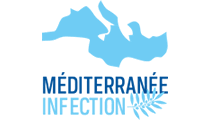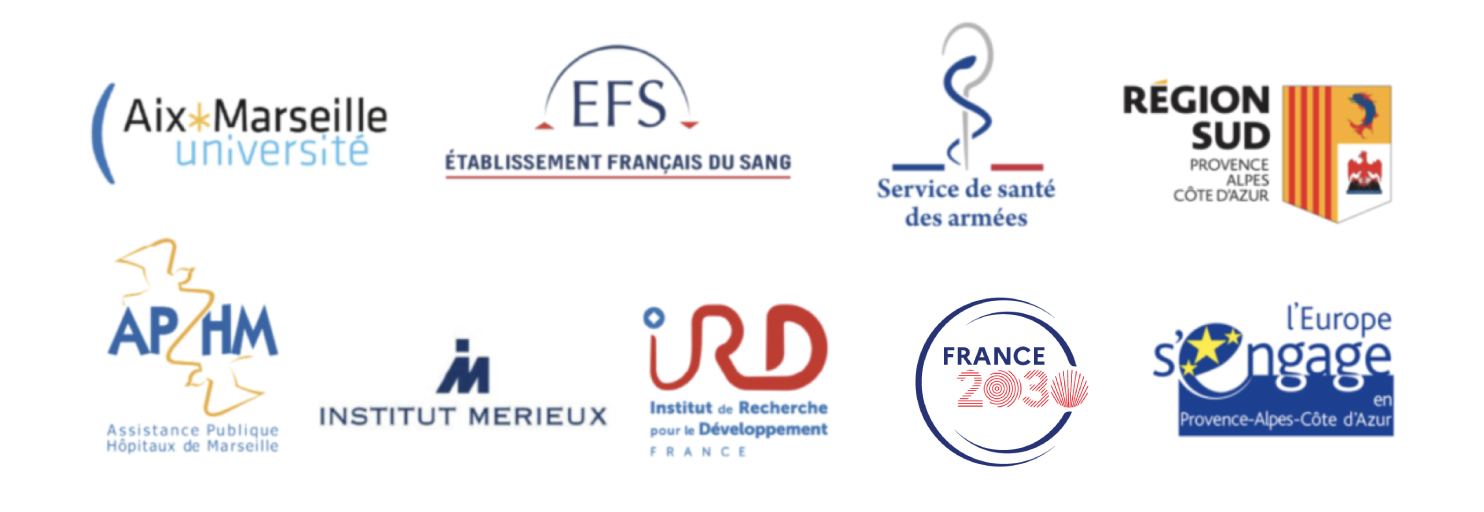Autour de plateformes technologiques comportant tous les outils les plus modernes dans la course technologique, permettant de rester compétitif au niveau de la recherche mondiale en maladies infectieuses, 4 unités de recherche (UMR) sont regroupées dans l’IHU :
- Microbes, Evolution, Phylogénie et Infection (MEPHI ; Pr B. La Scola, Dr O. Mediannikov)
- Vecteurs – Infections Tropicales et Méditerranéennes (VITROME ; Pr P. Parola)
- Sciences Economiques & Sociales de la Santé & Traitement de l’Information Médicale (SESSTIM ; Pr R. Giorgi)
- Unité des Virus Emergents (UVE ; Pr de Lamballerie)
Les laboratoires de recherche ont bénéficié d’investissements important permettant depuis 2011 l’achat d’équipements d’une valeur de 35 millions d’euros. Nous disposons d’une plateforme de biologie moléculaire, de culture/NSB3, de séquençage génomique, de protéomique (analyse fonctionnelle des protéines), de lyophilisation, de microscopie, de cytométrie, de bio-informatique, d’une bio-banque, d’un insectarium et d’un centre vétérinaire. Le plus grand laboratoire de manipulation de microbes hautement pathogènes (de 1200 m2) garantissant la protection du manipulateur et de l’environnement, a également été créé. Dans ce cadre, le Service de Santé des Armées développe sa recherche et sa veille, pour favoriser une recherche militaire d’excellence, réalisée en partenariat avec la recherche civile.
L’une de nos plus importantes réalisations est la mise en place d’une stratégie d’étude du répertoire de tous les microbes humains. Elle a permis, depuis la création de l’IHU il y a 5 ans, de découvrir 30% des microbes retrouvés, au moins une fois chez l’homme, depuis l’aube de l’humanité comme en témoigne les noms latins qui ont été donnés à ces nouvelles espèces de bactéries, « massiliense » ou « massiliensis » en référence à la ville de Marseille, « timonensis » ou « timonense » en référence à l’hopital de la timone ou encore « Bouchedurhonensis » en référence au département. Ces noms de bactérie sont devenus les plus communs donnés aux bactéries dans le monde, comme le montre l’image ci dessous.
Concernant les virus, l’UVE a isolé plus de 300 virus et identifié 14 espèces de virus à partir des arthropodes et dispose de la plus grande collection d’arbovirus du monde avec la présence de 466 souches. Les équipes de MEPHI poursuivent la recherche entamée par l’URMITE dans le domaine des virus associés aux amibes, dont 4 familles ont été découvertes dans l’IHU et pourraient jouer un rôle en pathologie humaine.
Nous avons été les premiers au monde à décrire les virus géants : 138 d’entre eux ont été isolés dans notre laboratoire et le génome de 108 virus géants a été séquencé. Avec VITROME, les maladies vectorisées et leurs arthropodes vecteurs (comme les moustiques, les tiques, les poux, les puces,…), les zoonoses, et les maladies parasitaires sont au cœur d’une recherche basée sur la technologie et observation.
Les activités de recherche comprennent également un département de Sciences Humaines et Sociales pour analyser l’expérience et les représentations sociales de la maladie, les comportements de prévention, le travail de soins, les enjeux économiques de la maladie et de la prise en charge sanitaire, un secteur au rendement accru par les rencontres croisées de chercheurs provenant d’horizons différents.




